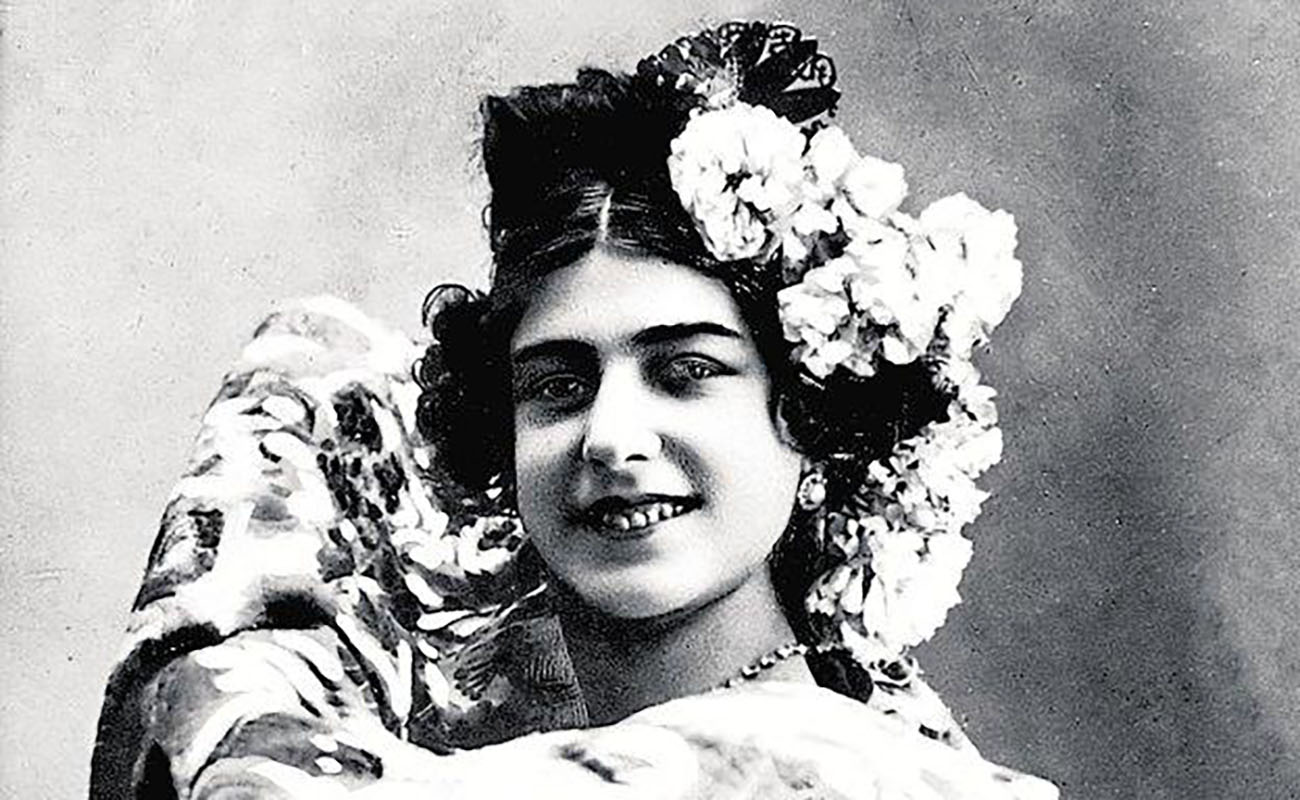Grandpa goes to Cádiz
-Grandpa, where will you go on holidays, this year? -This year I’ll be going to Cádiz, the land of grace, compás and the good life. -Enough with the cliches already, grandpa. -I know you prefer Andorra, and not because it’s a tax heaven, but the good stuff is in Cádiz. I’ll spend some days in the “Little Cup”(1) to finish my

-Grandpa, where will you go on holidays, this year?
-This year I’ll be going to Cádiz, the land of grace, compás and the good life.
-Enough with the cliches already, grandpa.
-I know you prefer Andorra, and not because it’s a tax heaven, but the good stuff is in Cádiz. I’ll spend some days in the “Little Cup”(1) to finish my research about Rosario Monge “La Mejorana”, the best bailaora of the XIX century. She was the mother of no other than Pastora Imperio. It’s because of La Mejorana that today’s bailaoras of Seville move their arms the way they do.
-And what do you know about her? Because barely anything is known about her family, or about her early years.
-I know a lot about her, Manolo. Did you know that when she arrived in Seville in the 1880s, revolutionising the cafés of Silverio and El Burrero, she was already a widow? Now you know. She wasn’t dishonored by that bullfighter’s tailor, as has been said, because she first got married, as a minor, with a gypsy butcher from Puerto de Santa María. La Mejorana left Cádiz soon after he died.
-Bombshell, grandpa! They say that this tailor from Seville, don Víctor Rojas Teresa, was quite handsome, wasn’t he?
-Yes he was. Well-poised and good looking like no other. Since La Mejorana was also a beauty, their daughter was gorgeous too, driving crazy many men with her beautiful green eyes and long eyelashes, more enticing than Greta Garbo’s.
-Why didn’t this tailor marry La Mejorana?
-Who said he didn’t? They married, but when they were older. What happened is that married young and became a widow soon after, and he already had children by another woman before he fell in love with La Mejorana. This woman’s life should be made into a movie.
– Was El Caoba from Cádiz, grandpa?
-Of course he was from Cádiz. José Rafael Ortega Cepeda was his name. He was a son of José Ortega López, brother of El Nitri, both from Puerto de Santa María. Caoba had a hard childhood. His birth certificate has less information than Chacón’s, and that says a lot. Yet, it’s said that he sang very well, particularly the seguiriyas. Bear in mind that he was the grandson of El Fillo’s brother, Andrés, who was the father of El Nitri. It was a family of seguiriyeros.
-Yet, El Nitri was from Puerto de Santa María, right?
-Yes, but he was raised in Cádiz, among Andrés el Loro, Curro Durse, El Mellizo y the Ortegas. He was very attached to Jerez and Triana, though. His brother Francisco lived in Triana for many years, and it’s very likely El Nitri visited him. By the way, Francisco was a neighbor of Curro Puya, Diego el Lebrijano and the Pelaos, and also of Frasco el Colorao, who, according to Rafael Pareja, was Nitri’s teacher. Let’s not forget his connection with the family of El Planeta, in Málaga, where he also lived. Nitri was a wandering gypsy, a travelling soul.
-What other Pioneer artists of Cádiz are you interested in?
-I have a great interest in El Mellizo because, although being a humble gypsy butcher who seldom travelled outside Cádiz, he changed things and created a new style. Just imagine: the greatest cantaores, such as Chacón and Manuel Torres, were his followers. No one is remembered in posterity just by chance, but because they’ve contributed something. El Mellizo was an innovator and that’s why people still talk about him, more than a century after he died. He certainly didn’t achieve lasting fame for carving calves or for making sausages.
-Grandpa, I’m shocked. Instead of going to Cádiz to enjoy Victoria beach, you’ll end up dusting off old documents. You have no remedy.
-It’s an obsession, Manolo.
- Cádiz is popularly known in Spain as “The Little Silver Cup” (“La Tacita de Plata”)
- El Nitri was the nickname of Tomás Francisco Lázaro de la Santa Trinidad Ortega López (seriously)




